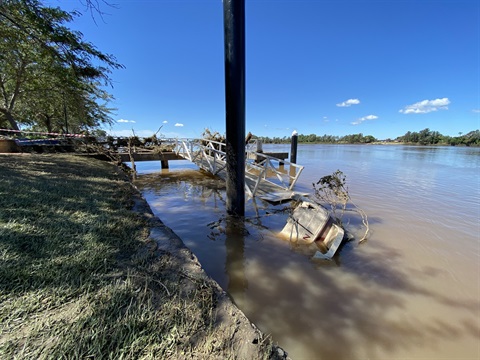
A team from MidCoast Council is working with the NSW Environment Protection Authority (EPA) to undertake widespread environmental sampling across the region following last week's flood.
The results of the sampling will be used to inform the public which waterways are safe for recreational use.
"Now floodwaters are starting to recede, it's important we gauge the level of impact on our waterways and assess the risks associated with using them," said Council's Director of Infrastructure and Engineering Services, Rob Scott.
"We know a lot of things have ended up in our waterways that don't normally belong there, that's why it's best to keep out of floodwater."
Mr Scott said part of the team's focus would be on assessing areas where some level of sewer overflows were suspected to have occurred.
"Sewer systems are always under threat during flooding. Sewerage systems tend to be located at the lowest points and these can be inundated by large flood events," he said.
"We try hard to avoid any overflows occurring, but when the system can't keep up and becomes flooded some level of overflow becomes unavoidable."
Council's sewer systems were all fully operational again just days after the peak of the flood, with teams working around the clock to keep as much as they could going and reinstate the vacuum systems at Harrington and Manning Point. The Wingham Sewage Treatment Plant and surrounding pump stations have also been fixed after they became submerged in floodwaters and sustained some electrical damage.
"Our teams worked tirelessly to keep things going and fix any damage that occurred during the flood and it's because of them that sewage contamination is not as big a problem as it could've been," Mr Scott said.
"The biggest worry right now is everything else that's in the water – dead animals, excrement washed into the river, soil and runoff from farms and other areas. We know the water quality will be impacted with the amount of organic material in the water that's rotting, but just because the water might smell really bad doesn't mean it's still contaminated by sewage."
With environmental sampling well underway, Mr Scott said results would be back tomorrow and Council would be able to provide the community with some accurate advice regarding recreational water use.
Until then, all flood-affected waterways should be treated as potentially contaminated and avoided.






